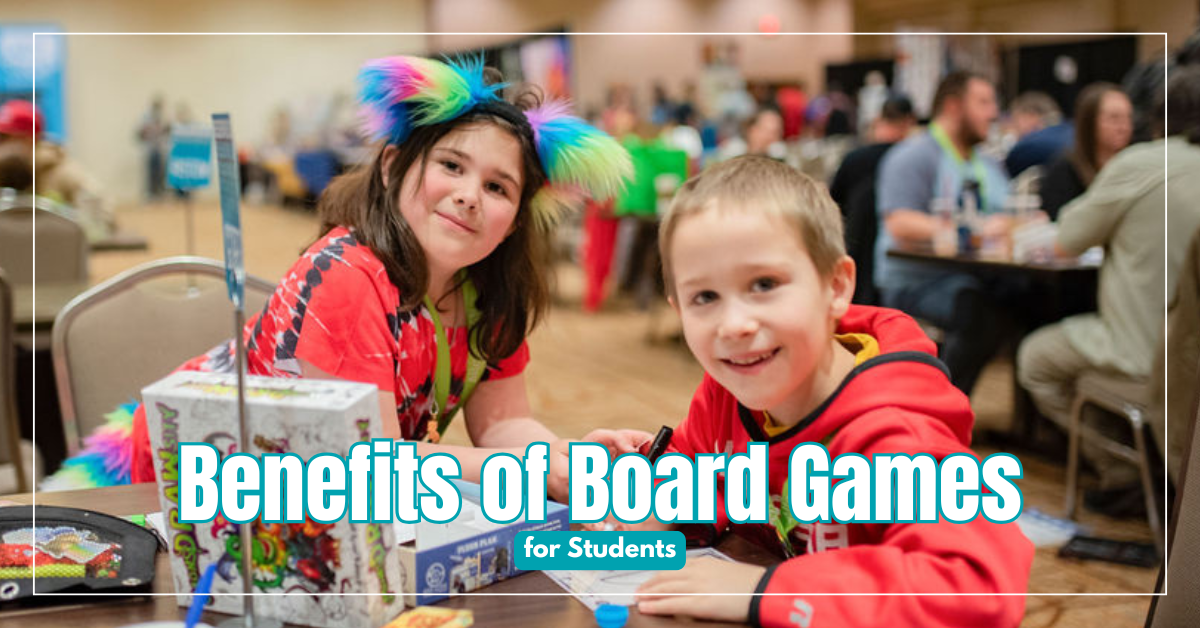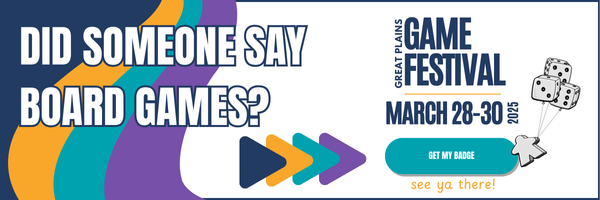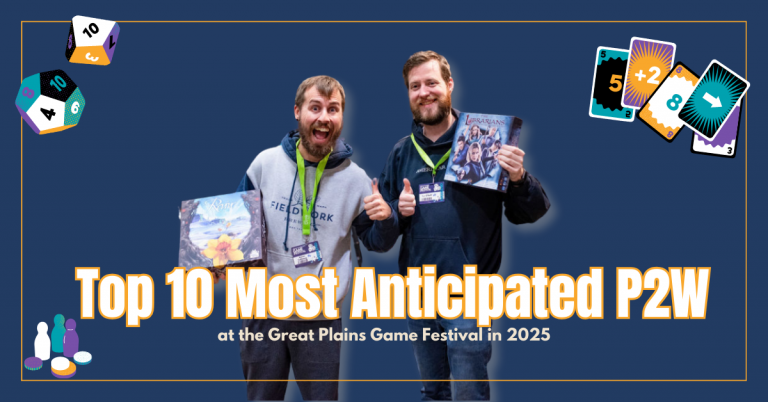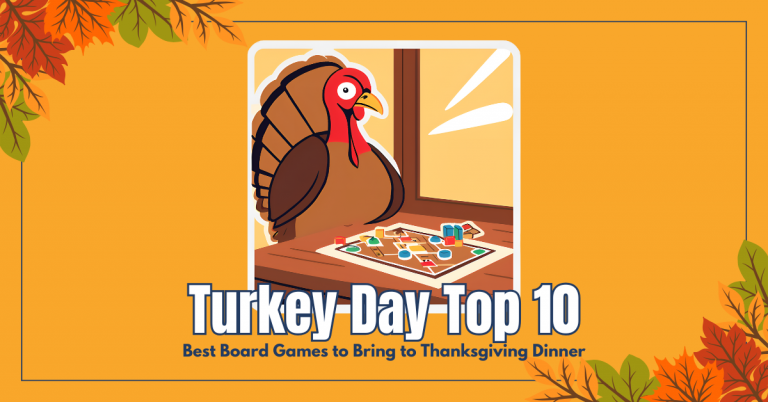Picture this: A group of students huddled around a game board, eyes alight with excitement as they plan their next move. Laughter erupts as someone takes a bold risk, while another player carefully strategizes their response. They may think they’re just playing a game…but in reality, they’re building essential life skills that will shape their future.
In a culture dominated by screens and digital distractions, board games offer something refreshingly different: face-to-face connection, critical thinking, and the joy of learning through play. Whether it’s a family gathering, a classroom activity, or a casual game night with friends, board games create opportunities for students to grow socially, emotionally, and academically—without even realizing it.
From strengthening problem-solving skills to teaching resilience in the face of setbacks, the benefits of board games for students go far beyond entertainment. Let’s explore why rolling the dice, shuffling a deck, or placing that perfect tile can be one of the most valuable learning experiences for students today.
1. Boosts Critical Thinking & Problem-Solving Skills
Board games challenge students to think critically, weigh their options, and adapt their strategies in real time. Unlike passive learning, these games require active decision-making, where each choice has consequences. Whether they’re calculating risks in Chess or predicting an opponent’s move in Onitama, students develop essential skills like strategic planning, logical reasoning, and problem-solving. These skills not only enhance academic performance but also prepare students for real-world situations where quick thinking and adaptability are key.
Games to try:
- Chess: A timeless game of strategy that teaches students planning, pattern recognition, and logical thinking.
- Onitama: A streamlined, more dynamic strategy game that introduces spatial reasoning and tactical decision-making in a fast-paced, kid-friendly way.
- Rush Hour: A puzzle-based game that challenges students to solve increasingly complex traffic jam scenarios, improving their problem-solving and sequencing skills.
💡 Did you know? A study found that children aged 7 to 12 who regularly played board games showed significant improvements in cognitive flexibility and inhibition, both essential components of executive function that contribute to stronger problem-solving skills.
2. Enhances Math & Literacy Skills
Many board games incorporate essential academic skills in a fun, low-pressure way. Unlike traditional worksheets or drills, games provide hands-on learning experiences that encourage students to think critically while actively engaging with numbers, words, shapes, and ideas. Whether they’re calculating scores, forming words, or recognizing patterns, students absorb key math and literacy concepts. Because board games naturally reward effort and strategy, they help students build confidence in these areas, making them more likely to approach academic challenges with a positive mindset.
Games to try:
- Codenames: A team-based word game that challenges players to form connections between multiple words, reinforcing vocabulary,language skills, and creative wordplay
- Sushi Go Party!: This fun, fast card-drafting game helps players develop counting, probability, and strategic thinking as they build the best set combos.
- Letter Tycoon: A word-building game with an economic twist, where players form words, earn money, and acquire patents, reinforcing both literacy and basic financial concepts.
🎲 Real-Life Application: Board games make learning feel like play, reinforcing math and reading skills in a way that feels natural—not like homework!
3. Builds Resilience & Emotional Intelligence
Losing a game can be frustrating, but it also presents a valuable lesson in resilience and emotional regulation. Board games help students develop a growth mindset, teaching them how to handle setbacks, adapt strategies, and persist through challenges. These experiences translate directly into better emotional resilience in school and everyday life.
Games to try:
- Sorry!: A roll-and-move game where players experience setbacks and must adapt their strategy to win.
- Forbidden Island: A cooperative game where players work together to collect treasures before the island sinks, learning teamwork and adaptability in the face of obstacles.
- Karuba: A tile-laying adventure game where players must adjust their path as they race to find treasure, teaching flexibility and quick decision-making.
🧠 Encouraging a Growth Mindset: Board games teach kids that failure isn’t the end. It’s a chance to learn, improve, and try again; reinforcing perseverance and confidence.

4. Improved Focus & Attention Span
With constant distractions trying to grab their attention, fostering sustained attention in students is more crucial than ever. Board games offer an engaging way to develop this skill, requiring players to focus, plan ahead, and remain attentive throughout the game. Unlike fast-paced video games, which can contribute to shorter attention spans, board games encourage prolonged concentration and patience.
For students with attention challenges, such as ADHD, certain board games can be particularly beneficial. A study published in Psychiatry Investigation found that children with ADHD who played the strategic board game Go (also known as Baduk) for two hours daily over 16 weeks showed significant improvements in attention and executive function. The researchers suggest that playing Go activates the prefrontal cortex, enhancing cognitive functions related to attention and self-control.
Games to try:
- Jenga – Requires steady hands, patience, and concentration as players carefully remove and stack blocks without toppling the tower.
- Blokus: A visually engaging strategy game that requires players to plan ahead, focus on spatial awareness, and think critically.
- Animal Upon Animal: A dexterity game that requires patience and concentration as kids carefully stack wooden animals without knocking them over.
⏳ Patience & Focus: Unlike fast-moving digital games, board games require players to stay engaged for extended periods, helping students develop patience, concentration, and deeper thinking skills.
5. Strengthens Family & Classroom Bonds
Human connection is essential for emotional well-being, and research shows that shared activities help build trust, strengthen communication, and deepen relationships. Studies in neuroscience reveal that engaging in cooperative and social play triggers the release of oxytocin, often referred to as the bonding hormone, which promotes feelings of trust and closeness. Additionally, social play activates the brain’s reward centers, reinforcing positive interactions and fostering a sense of belonging.
Board games provide a structured yet playful way to nurture these connections, allowing families and classrooms to communicate, collaborate, and navigate challenges together in a low-pressure environment. Whether it’s negotiating trades, celebrating victories, or working as a team, these moments of shared play help reinforce emotional bonds that extend far beyond the game table.
- Scrabble: A word-building game that fosters discussion, collaboration, and family-friendly competition.
- Qwirkle: A fun abstract strategy game that involves placing tiles based on shapes and colors that form a line of either matching colors or matching shapes.
- Jack’s Friends: A semi-cooperative storytelling game that strengthens classroom or family relationships by encouraging teamwork and collective decision-making.
🎯 Fact: A study from the American Academy of Pediatrics emphasizes the importance of play in developing social-emotional skills, particularly in early childhood.
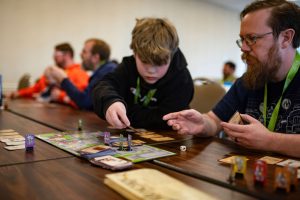
6. Sparks Creativity & Imagination
Creativity is a vital skill that extends far beyond the arts—it fuels innovation, problem-solving, and adaptability in everyday life. Encouraging students to think outside the box, express ideas freely, and build unique narratives helps develop their confidence and communication skills. Whether they’re crafting stories, improvising solutions, or interpreting abstract ideas, creative play allows students to explore new perspectives and stretch their imaginations in ways that traditional learning methods may not.
- Dixit: Encourages creative thinking and storytelling through beautifully illustrated cards.
- Telestrations: A drawing and guessing game that sparks creativity, humor, and storytelling while improving communication skills.
- Sparkle Kitty: A fast-paced, silly game where players free themselves from a tower by saying magical phrases, encouraging vocabulary building and imaginative play.
✨ Did you know? Creative play has been linked to higher problem-solving skills and adaptability later in life
The Lasting Benefits of Board Games for Students
Board games may seem like simple entertainment, but as we’ve explored, their impact on students is anything but trivial. From sharpening critical thinking skills and boosting literacy to fostering emotional resilience and deepening social bonds, board games provide an engaging, hands-on way to learn that no textbook or screen can replicate.
The beauty of board games is that they make learning feel like play—a joyful, low-pressure experience where mistakes become lessons, patience leads to success, and collaboration strengthens relationships. Whether in the classroom, at home, or during a friendly game night, these experiences help students build lifelong skills in a way that is both meaningful and fun.
So, the next time you’re looking for an engaging activity, skip the screens and grab a board game—because every roll of the dice, every carefully planned move, and every shared laugh has the power to shape young minds in ways that will last long beyond the game table.
Board Game Recap:
18 Games for Students that we would recommend
- Chess: A timeless game of strategy that teaches students planning, pattern recognition, and logical thinking.
- Onitama: A streamlined, more dynamic strategy game that introduces spatial reasoning and tactical decision-making in a fast-paced, kid-friendly way.
- Rush Hour: A puzzle-based game that challenges students to solve increasingly complex traffic jam scenarios, improving their problem-solving and sequencing skills.
- Codenames: A team-based word game that challenges players to form connections between multiple words, reinforcing vocabulary,language skills, and creative wordplay
- Sushi Go Party!: This fun, fast card-drafting game helps players develop counting, probability, and strategic thinking as they build the best set combos.
- Letter Tycoon: A word-building game with an economic twist, where players form words, earn money, and acquire patents, reinforcing both literacy and basic financial concepts.
- Sorry!: A roll-and-move game where players experience setbacks and must adapt their strategy to win.
- Forbidden Island: A cooperative game where players work together to collect treasures before the island sinks, learning teamwork and adaptability in the face of obstacles.
- Karuba: A tile-laying adventure game where players must adjust their path as they race to find treasure, teaching flexibility and quick decision-making.
- Jenga – Requires steady hands, patience, and concentration as players carefully remove and stack blocks without toppling the tower.
- Blokus: A visually engaging strategy game that requires players to plan ahead, focus on spatial awareness, and think critically.
- Animal Upon Animal: A dexterity game that requires patience and concentration as kids carefully stack wooden animals without knocking them over.
- Scrabble: A word-building game that fosters discussion, collaboration, and family-friendly competition.
- Qwirkle: A fun abstract strategy game that involves placing tiles based on shapes and colors that form a line of either matching colors or matching shapes.
- Jack’s Friends: A semi-cooperative storytelling game that strengthens classroom or family relationships by encouraging teamwork and collective decision-making.
- Dixit: Encourages creative thinking and storytelling through beautifully illustrated cards.
- Telestrations: A drawing and guessing game that sparks creativity, humor, and storytelling while improving communication skills.
- Sparkle Kitty: A fast-paced, silly game where players free themselves from a tower by saying magical phrases, encouraging vocabulary building and imaginative play.


